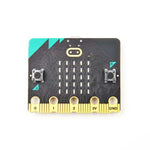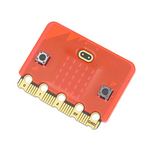Menú
Children’s Programming Education is the Future Trend

In recent years, the landscape of children's programming education has witnessed significant strides in European and American countries. With the increasing importance of digital literacy and technological proficiency, governments, educators, and organizations are prioritizing efforts to equip the younger generation with essential coding skills from an early age. This article delves into the latest developments in children's programming education across Europe and the United States, supported by authentic research findings.
European Initiatives:
European countries have proactively integrated programming education into school curricula and extracurricular activities. Initiatives such as the "Europe Code Week" aim to engage millions of children and young people in coding activities, fostering digital creativity and innovation. According to a study conducted by the European Commission, countries like Finland, Estonia, and the United Kingdom have made significant progress in integrating coding into primary and secondary education, with positive outcomes in critical thinking, problem-solving, and teamwork skills among students.
Research conducted by the European Schoolnet (EUN) highlights the effectiveness of project-based learning approaches in teaching programming concepts. By incorporating real-world projects and collaborative tasks, educators facilitate deeper engagement and retention of coding skills among students. Furthermore, partnerships between schools, industry stakeholders, and non-profit organizations have emerged as catalysts for promoting coding education, ensuring its relevance to future career opportunities.
American Initiatives:
In the United States, various initiatives and programs have been launched to expand access to programming education for children. The "CSforAll" initiative, endorsed by the Obama administration and continued under subsequent administrations, aims to provide all students with opportunities to learn computer science. Through partnerships with schools, universities, and community organizations, the initiative has reached millions of students across the country.
Research conducted by the National Science Foundation (NSF) underscores the importance of early exposure to coding in shaping students' attitudes and career aspirations in STEM fields. Longitudinal studies have shown that participation in coding programs during childhood correlates with increased interest in pursuing computer science degrees at the collegiate level. Moreover, the integration of coding into interdisciplinary subjects, such as mathematics and science, has been shown to enhance students' overall academic performance and problem-solving abilities.
In recent years, ELECFREAKS has invested more and more in the field of children's programming education, organized more technology competitions, and participated in more technology festivals organized by schools and educational organizations. Just on March 13, 2024, ELECFREAKS' cutting-edge programming education products recently made a remarkable impact at a technology education event held in a prestigious middle school in Shenzhen!

Students showing an immense interest and enthusiasm for ELECFREAKS' innovative products. It was awe-inspiring to witness the budding young minds engaging passionately with our technology, exploring new possibilities, and embracing the world of programming like never before!
At ELECFREAKS, we believe that every student deserves a chance to unlock their full potential through technology education. We are committed to providing the tools and resources necessary to equip the next generation with the skills they need to thrive in the digital era.
Conclusion:
As the demand for digital skills continues to grow in the global economy, the importance of children's programming education cannot be overstated. Both European and American countries are making commendable efforts to equip their youth with the necessary skills to thrive in the digital age. Through collaborative partnerships, innovative teaching approaches, and policy initiatives, governments and educators are laying the foundation for a generation of creative problem-solvers and technologically proficient individuals.
- Elegir una selección da como resultado una actualización de página completa.









